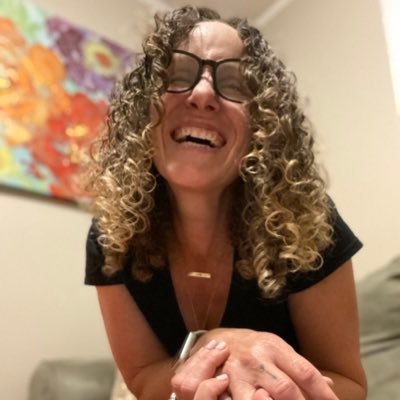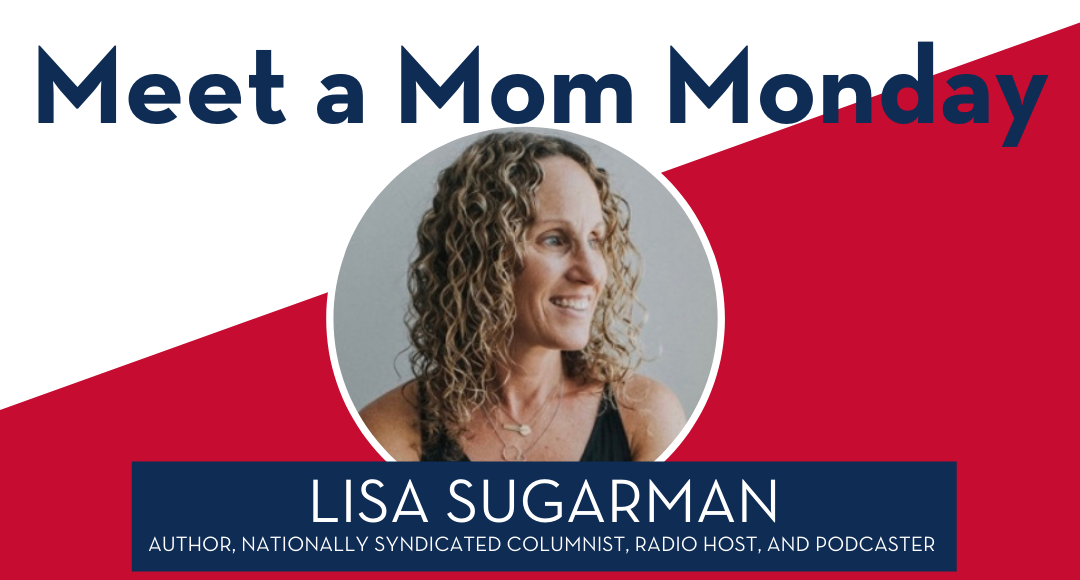Moms don’t get the recognition they deserve! As a business run BY local moms FOR local moms, Boston Moms is excited to showcase the hard work local moms are doing — both at home and in their professions.
Boston Moms is proud to feature Lisa Sugarman — local author, nationally syndicated columnist, radio host, and podcaster.
We asked Lisa to share a little about herself. Let’s get to know her!
Tell us about yourself! I’m Lisa Sugarman, and I’m a parenting author, a syndicated columnist, and a radio show host. My husband, Dave, and I have been together since we were 17, and we also have two daughters — Riley and Libby. Everybody’s living at home thanks to Covid, and it’s been a real gift to have all this extra time together (although I’m sure if you asked our girls, they’re totally over all the togetherness).
Where do you live? We just sold our house of almost 20 years in Marblehead, and we’re living in Salem now.
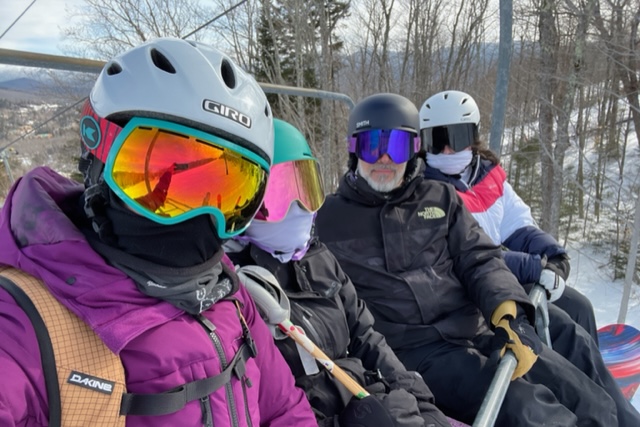
Favorite restaurant? If I’m getting nostalgic, I’d have to say The Driftwood Restaurant in Marblehead. It’s a local-knowledge kind of place that only serves breakfast and lunch. It’s been around for over 40 years, is the best place for breakfast or lunch, and feels like home.
Favorite local brand? My favorite local brand is Dipt in Marblehead. They make decadent hand-dipped and drizzled chocolate creations, and it’s owned and operated by one of my oldest friends, Kim Kramer. If you haven’t discovered it yet, you’re missing out.
Favorite “mom quote”? The one I say about 20 times a day is from Glennon Doyle: “We can do hard things.” Because we can, and we have to.
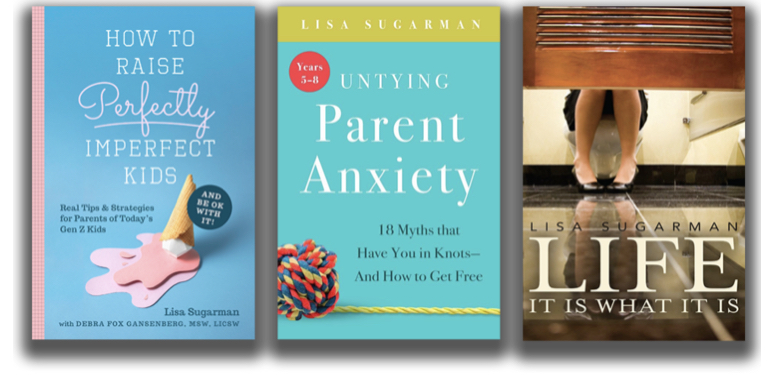
Speaking of “hard things,” what’s your take on the “bad mom” and “mom fail” complex? It’s tough enough to be a mom every day without worrying about feeling judged or feeling like a failure or a hot mess. The parenting community can be a pretty competitive one, and we almost can’t avoid some of those feelings from time to time. It’s when we can’t find a way to ignore all that white noise that the anxiety starts to creep in, and we start to wonder if we’re really “enough” as moms.
That becomes a tough narrative for a lot of moms to shake because it unlocks a whole world of insecurities. Being a mom tends to exacerbate our low-key insecurities as it is, and when we start comparing ourselves to all the moms around us it can get messy.
That is a very accurate description of being a mom! So where do we go from there? We need to prioritize turning the lens inward so we’re only paying attention to our own little family unit. That way, we learn to focus on what’s really important for our child(ren), and we quit comparing ourselves to everyone around us.
The parenting myths you talk about in your book are very relatable, especially ideas like screwing up or dropping the ball. Dropping balls is inevitable. As a parent. As a friend. As a child. As a human. Moms need to accept that it’s going to happen. A lot. Screwing up or making a bad decision doesn’t make you a failure or a bad parent, it just makes you human. We moms are especially hard on ourselves. As a mom, when we do screw up, we tend to internalize that failure on a different level because we instinctively feel like that mistake is going to trickle down and wreck our kids.
What would it look like to flip our mindset and assume that allowing our kids to see us make mistakes will help them? There’s incredible value in our kids seeing us mess up because it models that we’re human and fallible. We can use it as a teachable moment and focus on how to do better next time. That derailment is valuable to help us teach resilience.

Resilience goes hand in hand with independence. How do we know what responsibilities to pass on to our kids, and when? Passing on responsibilities that we’ve always managed for our kids, to our kids, is just an inevitable part of parenting. It’s the natural order of how kids grow up and learn to become more independent and self-reliant.
As far as academic responsibilities go, start small and when they’re young. Create routines like sitting down at the same time every afternoon to attack their homework. Eventually, you can move on to having them do their homework by themselves, while you’re in the same room. Ultimately, that evolves into them owning the responsibility of managing their work on their own, with only a minimal amount of checking in by you.
What about when it comes to life skills? Life skills work the same way. When our kids are young, we start involving them in day-to-day chores like laundry and cooking and taking care of pets by letting them watch us as we model. Then, as they get a little older, we start engaging them in the activity by encouraging them to put their clothes in the hamper and put the dog’s food in the bowl. Eventually, they will be able to do these parts of the chores/tasks alone, and you can keep giving them bigger roles in the task. Before you know it, there’s nothing they can’t do around the house, and those life skills are tools they’ll take with them wherever they go.
I’d love to pass responsibilities on to my kids, but it seems like they’re never LISTENING! That’s because kids don’t listen — at least not when they’re young and testing limits and finding their voice and gaining independence. They think they know everything, and listening to us is a colossal waste of time. So, they just don’t. That can create a massive tension between us and them — if we let it.
The thing to remember in terms of listening is that we need to prioritize what we’re saying and really siphon it down to the important stuff while they’re young and generally disinterested. As they mature and start caring in a different way, we can start having the conversations we want to have with them. Until then, it’s all about having the conversations we need to have.
In the meantime, one strategy that does really help is encouraging your kids to do the talking. As parents, we’re hardwired to be the ones doing all the teaching and sharing and communicating. Our kids also have a lot to say; we just don’t listen often enough sometimes. As a way of encouraging some good talk time, ask your kids what’s on their mind for a change. You’ll be surprised how easily those flood gates will open. Then, they’ll be more willing to listen to you.
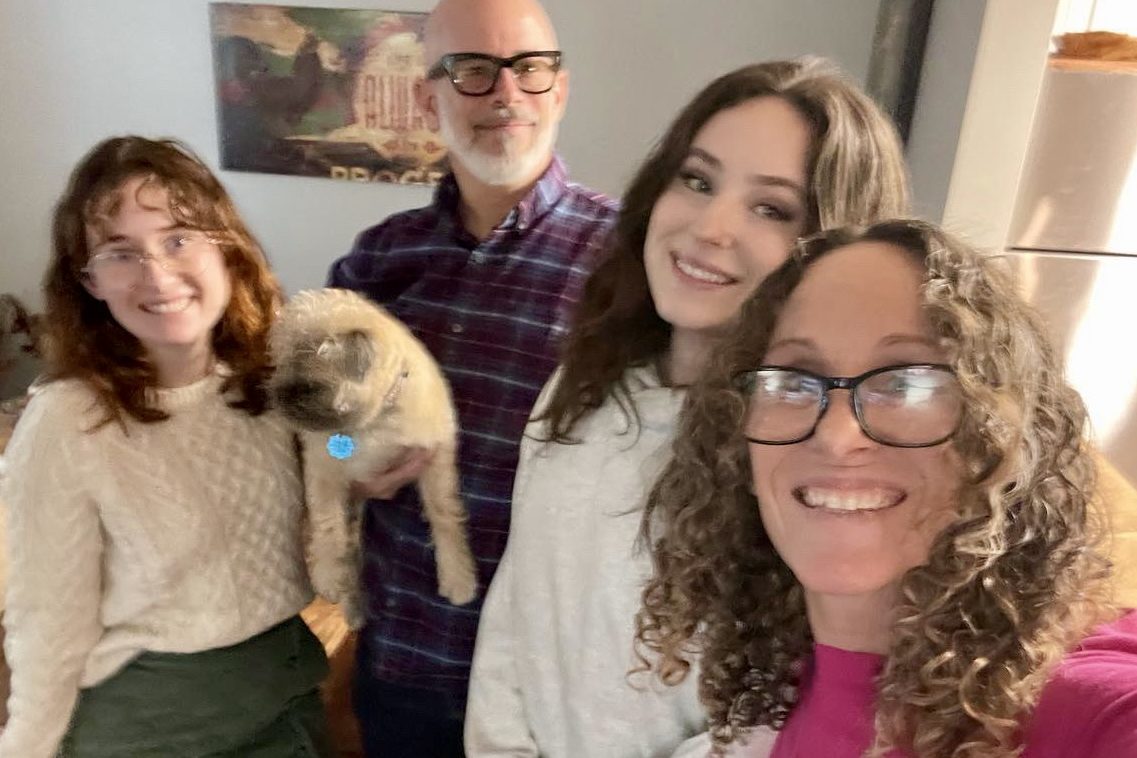
Passing responsibilities to our kids can feel weird. Talk us through this feeling of “letting go.” Watching our kids grow into themselves is a bittersweet experience. On the one hand, everything we’re doing when they’re young is for the benefit of teaching them how to be independent humans who will be able to go off and live their own lives. And on the other hand, it hurts to watch our kids become independent and need us less and less. Because, well, momming.
For most of us, there’s a deep sense of loss attached to letting go because it signals things are changing. Change is good. And healthy. And necessary to create space for new opportunities and growth. So as you experience those awkward feelings of letting go, just know you’ve given your kid(s) what they need to navigate the world on their own — and that’s a gift.
Where can we hear more from you? You can learn about everything I do by visiting my website, Instagram, Facebook, Twitter. You can find the archives of my radio show LIFE UNfiltered, with my co-host Debra Gansenberg, on iTunes and iHeart Radio.
You can find all three of my books on Amazon or anywhere else books are sold.
